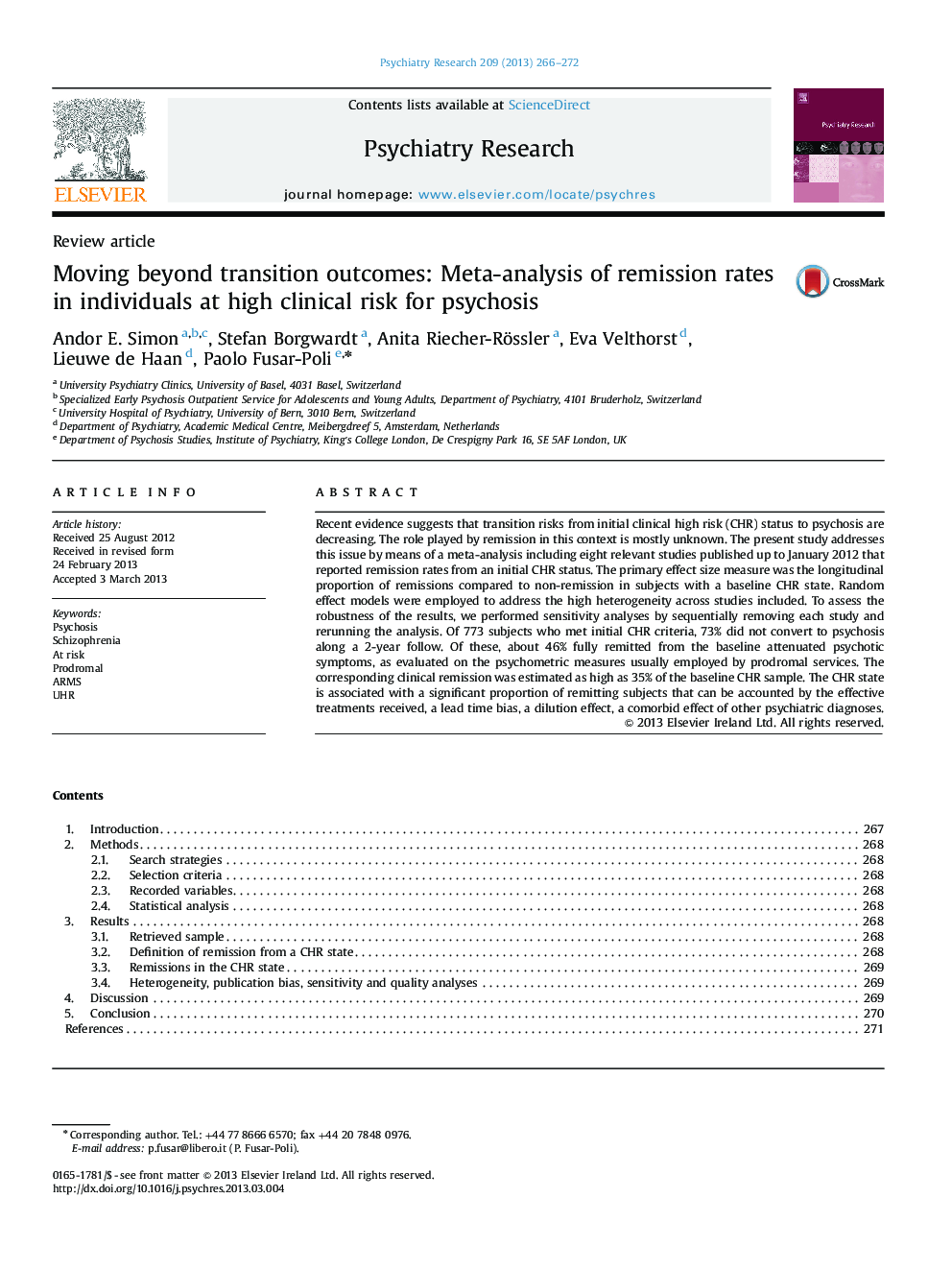| Article ID | Journal | Published Year | Pages | File Type |
|---|---|---|---|---|
| 333286 | Psychiatry Research | 2013 | 7 Pages |
Recent evidence suggests that transition risks from initial clinical high risk (CHR) status to psychosis are decreasing. The role played by remission in this context is mostly unknown. The present study addresses this issue by means of a meta-analysis including eight relevant studies published up to January 2012 that reported remission rates from an initial CHR status. The primary effect size measure was the longitudinal proportion of remissions compared to non-remission in subjects with a baseline CHR state. Random effect models were employed to address the high heterogeneity across studies included. To assess the robustness of the results, we performed sensitivity analyses by sequentially removing each study and rerunning the analysis. Of 773 subjects who met initial CHR criteria, 73% did not convert to psychosis along a 2-year follow. Of these, about 46% fully remitted from the baseline attenuated psychotic symptoms, as evaluated on the psychometric measures usually employed by prodromal services. The corresponding clinical remission was estimated as high as 35% of the baseline CHR sample. The CHR state is associated with a significant proportion of remitting subjects that can be accounted by the effective treatments received, a lead time bias, a dilution effect, a comorbid effect of other psychiatric diagnoses.
